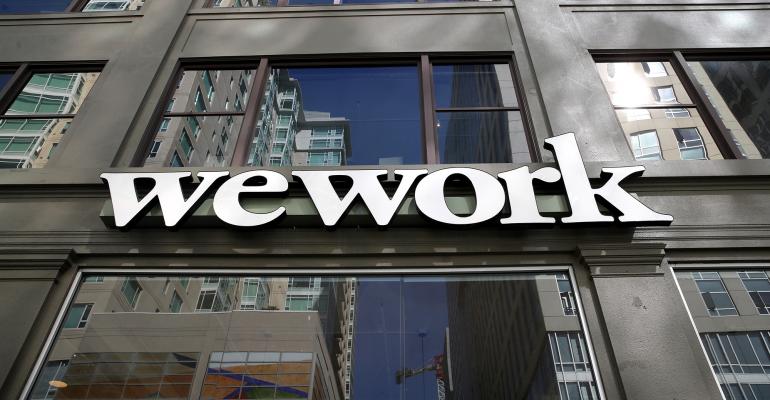(Bloomberg)—WeWork is continuing to woo customers who aren't ready to take on a regular lease of its office space but will pay for on-demand access, its chief executive officer said Monday.
The co-working company is on track to bring in close to $120 million in annual revenue from the 45,000 members on its “All Access” pass, which allows people to drop in to a WeWork location rather than rent out a desk or an office, said Sandeep Mathrani in an interview with Bloomberg Television at the JPMorgan Global High Yield & Leveraged Finance Conference in Miami. Mathrani took over as CEO of WeWork in 2020, not long after the ouster of co-founder Adam Neumann. WeWork has continued to push more flexible options for customers who are uncertain about what their office needs will look like after two years of a global pandemic.
Mathrani also said that he doesn’t currently think the company will have to leave its four office locations in Moscow amid increasing sanctions against Russia. The locations account for about $10 million in sales — a small slice of WeWork’s overall business. “We hope for a resolution of the conflict and hopefully we can continue to do business in Moscow,” he said.
Even though it’s been two years since the company was run by Neumann, famous for his brash personality and his failed attempt to take WeWork public, Mathrani said he still speaks “often” with WeWork’s co-founder. “I firmly believe you have to give respect to the founders of an organization,” Mathrani said.
To contact the authors of this story: Ellen Huet in San Francisco at [email protected],
Ed Hammond in New York at [email protected]
© 2022 Bloomberg L.P.





